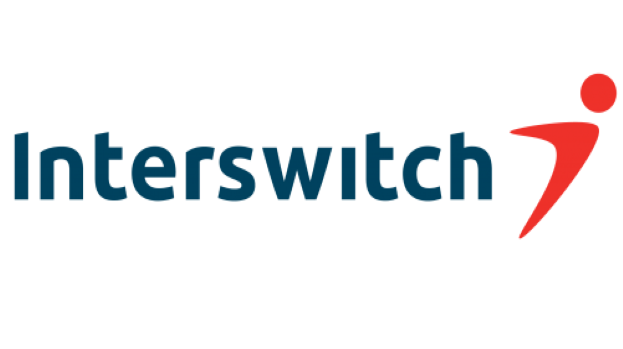/home/kenneth/web/nigeriacommunicationsweek.com.ng/public_html/wp-content/themes/zox-news/parts/post-single.php on line 153
">
Warning: Undefined array key 0 in /home/kenneth/web/nigeriacommunicationsweek.com.ng/public_html/wp-content/themes/zox-news/parts/post-single.php on line 153
Warning: Attempt to read property "cat_name" on null in /home/kenneth/web/nigeriacommunicationsweek.com.ng/public_html/wp-content/themes/zox-news/parts/post-single.php on line 153
Nipost – The Journey so Far
The history of the Post in Nigeria dates back to 19th century. The first post office was established by the British Colonial Masters in 1852. It was considered to be a part of the British postal system. It was a branch of London General Post Office and this was the situation till 1874.
In 1862 when the Post Office began its career as a full fledge Department , the Royal Niger Company (RNC) which was actively involved in economic activities in the country, set up its own postal system in Akassa in 1887, Calabar in 1891, Burutu in 1897 and Lokoja in 1899. Mails were being moved from these trading stations to and from Lagos by a weekly mail boat.
In 1898, the British Post Office established post offices at Badagary, Epe, Ikorodu, Ijebu-Ode, Ibadan and Abeokuta. In 1892, the Royal Niger Company became a member of the Universal Postal Union. By 1908, Money Orders and mail were directly exchanged with the German West African Colonies instead of via London, as it was the practice.
In 1925, Royal Airforce planes flew from Kano to Cairo carrying mail for the first time outside the country. From January 1, 1900, the Southern Nigeria Government took over the responsibility of running the postal system in the entire country. There were not too many good roads in those days as such mail were conveyed by canoes, launchers and runners which could only operate at intervals of two weeks or less.
The first post-office in Northern Nigeria was established and located at Lokoja in 1899. While mail delivery was initially the business focus, British Postal orders were being sold and encashed as from 1907 in post offices located at headquarters of all District Commissioners. Internal AirMail flights started in 1931. By 1906, 27 Post Offices were operating and at the time of independence in 1960, 176 Post Offices, 10 sub Post offices and 1,000 Postal agencies were in the country.
At independence, the post was administered jointly with Telecommunications as a government department. Later, postal establishments and services grew in leaps and bounds. The Federal Government by Decree No. 22 of 1966 made the department a quasi-commercial organisation, a step towards making it more efficient and responsive to public needs.
The Nigeria Postal service Department came into being with the establishment of the Nigeria Telecommunications Limited (NITEL) on January 1, 1985. NITEL emerged from the merger of the Telecommunications arm of the defunct Post and Telecommunications Department of the Ministry of Communications with the former Nigeria External Telecommunications Limited (NET). Through the promulgation of decree No. 18 of 1987, NIPOST became an Extra-Ministerial Department.
The decree provided among other functions of NIPOST, the following: To provide and operate facilities for collection, dispatch and distribution of inland and overseas mail at reasonable cost, To provide and operate facilities for remittance of money through the money or postal order systems, To provide and operate philatelic services in Nigeria,
To print and provide postage stamps for payment of postage tariff and payment of stamp duties, and To represent Nigeria in its relations with other postal administrations and other bodies concerned with postal services.
Prior to 1992, NIPOST operated as an Extra-Ministerial Department in the Ministry of Communications while Decree 18 of 1987 went through various amendments.
In response to the call to grant NIPOST some measure of autonomy, the Federal Government promulgated Decree 41 of 1992 and classified NIPOST as a Government Parastatal having the following basic functions: To develop, promote, and provide adequate and efficiently coordinated postal services at reasonable rates, To maintain an efficient system of collection, sorting and delivery of mail nationwide, To provide various types of mail services to meet the needs of different categories of mailers,
To establish and maintain Postal facilities of such character and in such locations consistent with reasonable economics as will enable the generality of the public to have ready access to essential postal services,and To represent the Federal Republic of Nigeria in her relations with other Postal Administrations and International bodies.
In addition to the above stated functions, NIPOST also has powers: To determine the need for Post Offices, Postal facilities and equipment, To prescribe the amount of postage stamps and the manner in which it is to be paid, To provide Philatelic Services, To establish and review Postal Tariff, To explore additional services to boost its revenue, and To provide and establish non-postal or similar services.

Warning: Undefined array key 0 in /home/kenneth/web/nigeriacommunicationsweek.com.ng/public_html/wp-content/themes/zox-news/parts/post-single.php on line 493
Warning: Attempt to read property "cat_ID" on null in /home/kenneth/web/nigeriacommunicationsweek.com.ng/public_html/wp-content/themes/zox-news/parts/post-single.php on line 493
General News
NITDA, Abia Partner on Enterprise Architecture Reform

In alignment with President Bola Ahmed Tinubu’s priority areas of economic reform, digital innovation, and improved governance, the National Information Technology Development Agency (NITDA) has reiterated its commitment to supporting sub-national governments in building integrated, data-driven systems that enhance service delivery and drive sustainable growth.

This commitment was reinforced at the Future Enterprise & Data Architecture of Abia State workshop themed “One Citizen, One Identity: Unlocking Data-Driven Governance.” The high-level engagement brought together policymakers, technocrats, and development partners to chart a pathway toward a unified digital public sector anchored on interoperability and citizen-centric governance.
The workshop, organised by the state’s Ministry of Budget and Planning and declared open by Governor Alex Otti, who was represented by the Deputy Governor, Engr Ikechukwu Emetu, focused on strengthening interoperability among Ministries, Departments, and Agencies (MDAs) to enhance revenue generation and improve service delivery across the state.
Speaking during a panel session titled “Breaking Silos, Building One Government,” the Director General of NITDA, Kashifu Inuwa CCIE, who was represented by the Agency’s Director of Stakeholder Management and Partnership, Dr Aristotle Onumo, emphasised that collaboration remains the cornerstone of successful digital transformation.
“One thing that is very clear is partnership and collaboration. If you want to take advantage of collective intelligence, then partnership is the key. If you want to succeed in building a unified government system, collaboration is the way to go,” he stated.
He stressed that digital transformation is not merely about deploying technology but about transforming people and culture. According to him, resistance to change and entrenched institutional silos can undermine even the most sophisticated technological frameworks if mindset shifts are not prioritised.
“Digital transformation is as much about people as it is about process and technology. If culture resists change, it can undermine strategy at every level. We must move from control to collaboration, and from isolation to integration,” he added.
Highlighting NITDA’s strategic direction, the DG noted that the Agency’s action plan prioritises digital literacy as a foundational pillar for national development. He disclosed that NITDA is targeting 70 per cent digital literacy nationwide through structured interventions, including training 30 million Nigerians across formal and informal sectors using digital learning platforms deployed through community and institutional partnerships.
He further revealed that digital education is being integrated into school curricula at primary, secondary, and tertiary levels, while civil servants across the federal public service are undergoing digital capacity development programmes to enhance institutional efficiency and readiness for interoperable governance systems.
On interoperability, Inuwa described it as “not optional but a necessity” for achieving data integrity, efficiency, and innovation in governance. He explained that NITDA is developing a national interoperability framework and advancing Enterprise Architecture (EA) initiatives across government institutions to ensure seamless data exchange.
“When we talk about interoperability, we mean that data generated in one agency should be accessible and usable by another in a consistent and secure format, without contradiction or confusion. That is how you build one government, not multiple disconnected systems,” he explained.
He added that a robust interoperability framework would not only improve internal government efficiency but also create a platform for innovation, enabling startups and young innovators to build solutions on structured public datasets.
While commending the state’s leadership for its vision and commission, he said, “If we achieve even 80 per cent of what has been presented here, Abia will not only lead among states, but it will also become a national reference point for digital innovation.”
The workshop concluded with a renewed call for stronger federal–state collaboration, policy alignment, and sustained investment in digital capacity to ensure that the vision of “One Citizen, One Identity” translates into tangible socio-economic impact.
E-Business
Interswitch Partners Abia to Digitise Public Hospitals

Interswitch, a technology company, through its health-tech subsidiary, Interswitch eClat, has taken a major step in advancing Nigeria’s public-sector health digitisation agenda following the conclusion of a high-level stakeholders’ engagement with the Abia State Government.

The engagement took place ahead of the phased deployment of eClinic, Interswitch eClat’s Electronic Medical Records platform, across public health facilities in the state, the firm stated in a statement on Friday.
The engagement, convened by the Abia State Ministry of Health in collaboration with Interswitch and held at the State’s Ministry of Health in Umuahia, brought together senior government officials, health administrators, Interswitch representatives, and key ecosystem stakeholders to align on the scope, implementation framework, and expected outcomes of the proposed eClinic deployment.
The initiative reflects a shared commitment to leveraging digital infrastructure to improve healthcare delivery, operational efficiency, and patient outcomes across Abia State’s public health system.
Discussions focused on deploying Interswitch’s eClinic solution in alignment with Abia State’s broader healthcare reform agenda under the current administration, particularly the transition from fragmented, paper-based systems to secure, interoperable digital platforms across public health facilities.
The proposed kick-off phase will span six public health facilities, including three primary healthcare centres, two secondary facilities, and one tertiary hospital, creating an end-to-end digital care pathway that strengthens patient referrals, supports continuity of care, and enables data-driven decision-making across all levels of service delivery.
The EMR solution is built to reduce patient waiting times, strengthen referral processes, and ensure the secure handling of both clinical and administrative data, supported by a hybrid infrastructure that enables local hosting with cloud-based backup.
Speaking at the engagement, Prof Enoch Uche, the Commissioner for Health, Abia State, described the initiative as a major milestone in the state’s healthcare transformation journey and highlighted the importance of private-sector collaboration in achieving sustainable impact.
“The Ministry of Health in Abia State is excited about the digitisation of health facilities, starting with Interswitch’s eClinic pilot phase involving three primary, two secondary, and one tertiary health centre. This initiative will enhance efficiency, accountability, and patient care by linking records across different levels of care.
“Global evidence shows that digital health improves access, reduces the cost of care, and maximises human resources while personalising services for our people. This partnership with Interswitch represents a key deliverable for this administration and aligns with the Governor’s vision for a modern, technology-driven health system,” he said.
During technical sessions led by Babatunde Fadeyi, Vice President, Health Ecosystem (Public Sector), Interswitch, stakeholders were taken through the core capabilities of Interswitch’s eClinic platform.
These include secure patient record management, ICD-11–compliant diagnosis coding, controlled data update protocols, and integrated billing and reporting tools designed to improve efficiency and accountability across health facilities.
Stakeholders were also briefed on the platform’s governance framework, risk mitigation approach, and phased implementation roadmap. Commenting on the engagement, Fadeyi reaffirmed Interswitch’s commitment to delivering measurable impact through technology-enabled healthcare systems.
“Abia State has demonstrated a strong commitment to innovation and system reform. The alignment of the state’s healthcare priorities with national health digitisation objectives creates a solid foundation for meaningful progress. Interswitch’s eClinic platform is designed to improve hospital operations by automating workflows, securing patient data, and providing healthcare managers with reliable insights to guide decisions.
“Beyond improving patient experience, it supports stronger revenue tracking, operational efficiency, and accountability. Our focus is to ensure the success of this pilot phase and deliver tangible improvements across productivity, service delivery, and patient satisfaction,” he said.
Also speaking at the engagement, Dr Ifeyinwa Blossom Uma-Kalu, the Permanent Secretary of the Ministry of Health, Abia State, highlighted the operational and clinical value of Interswitch’s eClinic initiative, particularly in strengthening referrals, improving revenue management, and expanding access to specialist care.
“This digitisation initiative will help us track our finances and internally generated revenue more accurately while reducing leakages. More importantly, it strengthens our referral system by allowing patient records to move seamlessly from primary to secondary and tertiary care.
“With a digital framework, healthcare workers in remote communities can access specialist support through telemedicine, helping to save lives and improve outcomes. This is a critical tool in our efforts to reduce maternal and infant mortality, and we are eager to see the outcomes of Interswitch’s eClinic,” she noted.
The engagement also addressed key success factors for the project, including power stability, user training, change management, and inter-agency collaboration, with both parties emphasising sustainability and scalability as the project progresses.
Telecom
Cyber Immunity Emerges as Shield for Nigerians Amid Rising Scams

Cyber immunity is gaining traction as essential defence for everyday Nigerians facing surging online scams, phishing attacks, and SIM swap fraud that now target ordinary smartphone users.

Once limited to corporations, threats like fake bank alerts, WhatsApp investment links, and account takeovers have infiltrated daily digital life, outpacing basic antivirus and passwords.
Digital Immune System for Resilience
Cyber immunity integrates devices, apps, and user habits to prevent, detect, and recover from breaches, mimicking a body’s immune response rather than relying solely on firewalls.
Modern smartphones exemplify this with instant app restrictions, suspicious site warnings, and secure hardware for payments and biometrics, curbing damage from human errors like clicking bad links.
In Nigeria’s fintech-driven economy—banking, shopping, education online—individuals lag behind banks in security, making consistent vigilance critical.
Practical Steps Build Personal Defences
Key actions include password managers with 2FA and biometrics, automatic updates for vulnerability patches, cautious browsing (verify URLs, shun urgent requests), and routine data backups to cloud or external drives.
Ignoring updates to save data heightens risks on dominant Android devices, while messaging app scams demand wariness.
Technology aids via OS behaviour detection and isolation, reducing third-party app reliance for safer defaults.
As Nigeria’s digital expansion accelerates, cyber immunity shifts security from one-off setups to ongoing habits, averting minor scares from escalating to major losses.

 Telecom3 days ago
Telecom3 days agoGroup Condemns Gabon’s Social Media Shutdown Amid Protests

 Telecom3 days ago
Telecom3 days agoIXPN Positions as the Regional Internet Exchange Hub for West Africa

 General News3 days ago
General News3 days agoHow JustMarkets Is Empowering African Traders with Global Market Access

 E-Business3 days ago
E-Business3 days agoMutual Benefits Assurance Settles ₦5.9bn Claims in January 2026

 Telecom3 days ago
Telecom3 days agoMenxtt NG Emerges as Nigeria’s Virtual IT Hub for Premium Devices, Solutions

 Broadcasting3 days ago
Broadcasting3 days agoPheelz Shares His Journey on Glo-Sponsored African Voices

 E-Business3 days ago
E-Business3 days agoNITDA DG Reaffirms FG Commitment to Responsible and Inclusive AI

 News3 days ago
News3 days agoAI-Driven Memory Chip Fuels Global Phone Price Surge













